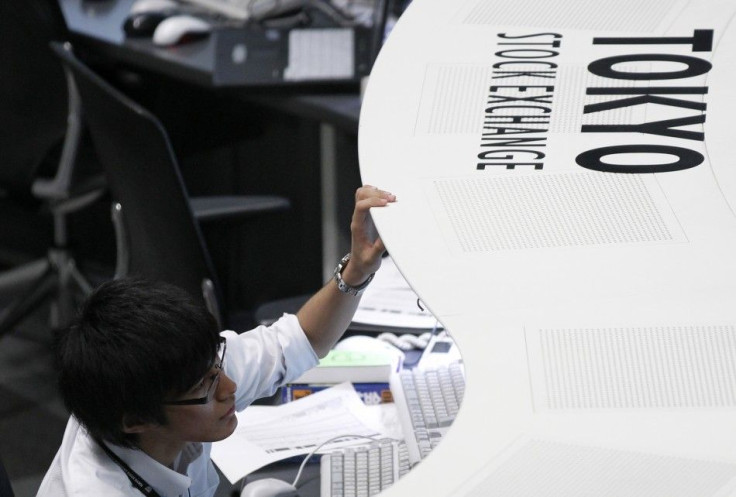U.S. Stocks Fall, Enabled by Weak Economy

World shares regained some ground Wednesday after investors were comforted by the Fed's pledge to keep interest rates near zero for two more years. Despite this, losses on Wall Street ran rampant.
U.S. stocks plunged again, overshadowing Tuesday's stock gains, as investors panicked over worries among European banks and the Federal Reserve's dark outlook.
The Dow Jones Industrial Average lost 406 points, or 3.6%, to 10,834. The Standard & Poor's 500-stock index fell 41 points, or 3.5%, to 1,132. The Nasdaq Composite decreased 79 points, or 3.2%, to 2,403.
European stocks fell 0.7 percent after Europe and Asia saw a morning of gains prompted by the Fed's announcement on Tuesday.
Investor confidence in China increased when data was released that China's export growth accelerated in July and that the nation was seemingly unaffected by weak demand from Europe and the U.S.
The MSCI world index was up half a percent, and emerging market shares increased by 1.8 percent.
The Fed sent mixed messages when it announced that it will keep rates very low until 2013, implying a willingness to keep things afloat but also fear that the economy is flailing.
"We now see a greater-than-even chance that (it) will resume quantitative easing later this year or in early 2012. We have changed our call because (the) statement suggests that the committee's reaction function to incoming economic news is more dovish than we had previously thought," Jan Hatzius, chief economist at Goldman Sachs, said in a note.
Gold and oil rebounded.
The dollar fell 0.4 percent against major currencies and the euro also fell.
Switzerland's central bank said it is boosting methods to fight Swiss franc's strength as investors continue to pour into the currency as a safe haven.
© Copyright IBTimes 2024. All rights reserved.











